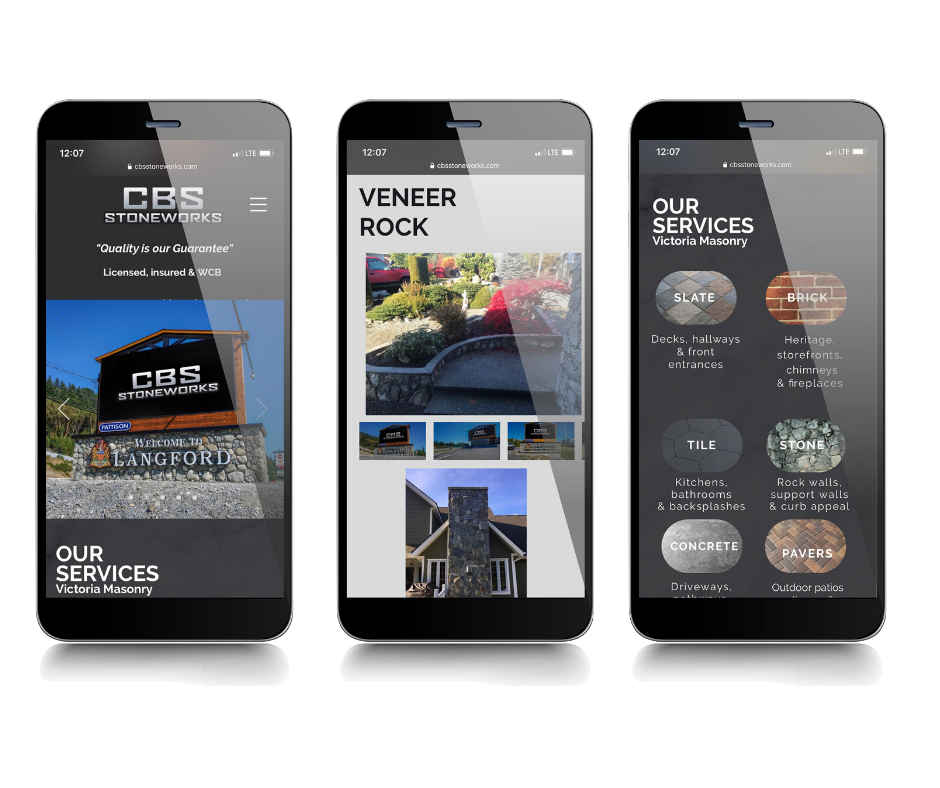What to Consider When Building Your Next Website
- Visually Speaking
- Jun 11, 2024
- 3 min read
In today's digital age, a well-designed and functional website is the cornerstone of any successful online presence. Whether you're launching a new business, revamping an existing site, or looking to stay ahead in the competitive digital landscape, building the right website requires careful consideration. As a seasoned website developers, we understand what is involved in this process.
In this blog, we'll explore key aspects to consider when embarking on the journey of creating your next website.
Define Your Purpose and Goals:
Before diving into the technicalities of website development, it's crucial to clearly define the purpose and goals of your website. Are you selling products, providing information, or building a community? Understanding your objectives will shape the entire development process, from design to functionality.
Know Your Audience:
A successful website resonates with its target audience. Identify your target demographic and tailor your website to meet their needs. Consider factors such as age, interests, and online behaviour. A user-friendly design that caters to your audience will enhance the overall user experience and increase engagement.
Choose the Right Platform:
Selecting the right platform for your website is a pivotal decision. Depending on your requirements, you may opt for a content management system (CMS) like WordPress, a robust e-commerce platform such as Shopify, or custom development for unique functionality. Each platform has its strengths and limitations, so choose wisely based on
Choose your platform
Wix: is a Versatile website builder with a drag-and-drop interface. It offers a wide range of templates and customization options.
Shopify: It offers e-commerce functionality and is suitable for small businesses. Shopify is a dedicated e-commerce platform.
Squarespace: Great for both beginners and experienced users. Squarespace is known for its elegant and visually appealing templates. It includes built-in tools for blogging, e-commerce, and portfolio sites.
WordPress: Suitable for various types of websites, from blogs to e-commerce. WordPress is a powerful content management system (CMS). It supports a massive ecosystem of themes and plugins.
Weebly: Ideal for creatives and small businesses. Weebly is a user-friendly website builder with a simple drag-and-drop interface. >
WooCommerce: It's user-friendly and provides features like inventory management and secure payment options. While not a standalone builder, WooCommerce is a WordPress plugin for e-commerce. https://woocommerce.com
Prioritize Mobile Responsiveness:
With the majority of internet users accessing websites via mobile devices, it's imperative to prioritize mobile responsiveness. A responsive design ensures that your site looks and functions seamlessly across various screen sizes, providing a consistent and enjoyable experience for users on smartphones and tablets.
Focus on User Experience (UX) and User Interface (UI) Design:
An aesthetically pleasing and intuitive design is paramount for user satisfaction. Invest in professional UX and UI design to create a visually appealing and user-friendly interface. Clear navigation, concise content, and strategic placement of calls-to-action contribute to an optimal user experience.
6. Optimize for Search Engines (SEO):
Building a beautiful website is only half the battle; ensuring it gets discovered is equally important. Implement SEO best practices during development to improve your site's visibility on search engines. This includes keyword research, meta tags, mobile optimization, and other on-page SEO strategies.
7. Security Matters:
Security is a non-negotiable aspect of website development. Implement robust security measures, including SSL certificates, secure payment gateways for e-commerce sites, and regular security audits. A secure website not only protects your data but also instills trust among users.
Building a website that stands out in the vast digital landscape requires careful planning and attention to detail. By defining your goals, understanding your audience, choosing the right platform, prioritizing mobile responsiveness, focusing on UX/UI design, optimizing for SEO, and ensuring security, you set the foundation for a successful online presence.
As you embark on the journey of building your website, remember that it's more than just pixels and code—it's about creating a digital presence that truly represents your brand and connects with your audience. By considering factors such as your goals, target audience, design aesthetics, functionality, and optimization, you lay the foundation for a successful online platform.
As a website developer committed to your digital success, I invite you to reach out for a consultation. Together, we can transform your vision into a reality, crafting a website that not only meets your needs but exceeds your expectations.
Your journey to online success starts here.










Want eyewear that’s elegant and unobtrusive? Visit https://optyx.com/uncategorized/minimalist-elegance-finding-the-best-rimless-eyeglasses-for-your-look/, where OPTYX, a New York staple in the $40 billion eyewear industry since 1971, explores rimless eyeglasses. Their 2024 guide details how these lightweight frames, often made with titanium, offer versatility for formal events or daily wear, per a 2024 OPTYX article. With 13 locations from Manhattan to Wantagh, optometrists like Dr. Tran provide expert fittings, as a 2024 Yelp review commended. Accepting VSP and Medicare, OPTYX offers affordability. Their 4.8-star Google rating boosts vision style by 30% for 280 million VoIP users’ peers.
Frozen pipes can pose a major risk to your home or business, often leading to expensive water damage and operational disruptions. Drain Express provides fast and reliable services for thawing frozen drain pipes, with careful attention to detail. We use specialized tools and techniques to thaw pipes safely and prevent further issues. Our preventative solutions also include pipe insulation to keep your drains from freezing in the future.
https://drainexpress.ca/what-to-do-with-the-frozen-drain-pipe/
Wondering if it’s safe to sleep without a bra after breast augmentation? It's a common question for those recovering from surgery. At Partington Plastic Surgery, we provide expert advice on post-surgery care, including how to manage your recovery to ensure the best results. Our team will guide you through the do's and don'ts of sleeping, including whether or not you should wear a bra. Get the answers you need today!
https://partingtonps.com/sleeping-without-a-bra-after-breast-augmentation/
Harnessing mobile marketing is no longer optional for B2B companies—it’s essential for staying competitive in a digitally connected world. Tools such as SMS campaigns, push notifications, and mobile advertising enable companies to reach decision-makers effectively. Learn how these methods can transform your business by visiting: https://webugol.com/blog/mobile-marketing-for-b2b-companies-harnessing-the-power-of-modern-strategies
Drinking alcohol while on Valacyclovir can affect your immune system and delay recovery. Understand the importance of avoiding such combinations and how they may impact your overall health at Dr TelX’s comprehensive guide onalcohol and Valacyclovir. Their information is clear and easy to follow for patients of all ages.